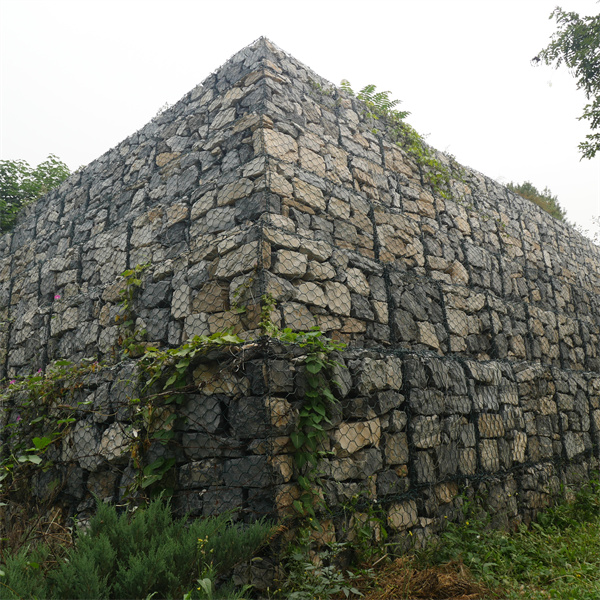Dec . 05, 2024 01:26 Back to list
Optimal Materials for Filling Gabion Walls in Construction Projects
Understanding Gabion Wall Fill A Comprehensive Overview
Gabion walls have emerged as a popular solution for various civil engineering and landscaping applications. Their distinctive structure, composed of wire mesh baskets filled with natural stone or other materials, provides significant benefits, especially in erosion control, flood management, and aesthetic landscaping. In this article, we delve into the specifics of gabion wall fills, examining types, advantages, and best practices for installation.
What are Gabion Walls?
Gabion walls are structures made of stacked stone-filled gabions, which are wire mesh containers filled with rocks, concrete, or other materials. These walls are designed to hold back soil and water, thereby preventing erosion and managing lateral earth pressures. Their versatility makes them suitable for both functional and decorative purposes, ranging from retaining walls and sound barriers to garden features.
Types of Gabion Fill Materials
The choice of fill material for gabion walls is crucial, as it largely determines the wall's durability and aesthetic appeal. Here are some common fill materials used in gabion walls
1. Natural Stone The most popular choice, natural stones, provide a rugged and organic look. Common types include limestone, granite, and river rock. Stones should be angular and of predictable size to ensure they fit well inside the mesh, promoting stability.
2. Recycled Materials For environmentally conscious projects, using recycled materials like crushed concrete, brick, or asphalt can reduce costs while promoting sustainability. These materials also possess excellent drainage properties.
3. Concrete Blocks Larger gabion structures may utilize smaller concrete blocks as a fill material. This choice adds weight and strength, making them suitable for structural applications.
4. Gravel When a more uniform look is desired, gravel may be used as a fill. It provides good drainage but may require careful installation to prevent displacement during heavy rainfall.
Advantages of Gabion Walls
Gabion walls offer several advantages over traditional retaining wall solutions
- Drainage The open structure of gabion walls allows water to flow through, reducing hydrostatic pressure and the risk of wall failure.
gabion wall fill

- Environmental Harmony With the use of natural stones, gabion walls can blend seamlessly into the landscape, making them an aesthetically pleasing option for gardens and parks.
- Cost-Effectiveness In many cases, gabion walls can be constructed more cheaply than poured concrete or other solid walls. The fill material can be sourced locally, further reducing costs.
- Flexibility and Strength Gabion walls can adapt to movements in the soil or landscape without cracking, making them a robust option for areas prone to erosion or seismic activity.
Installation Best Practices
To ensure that gabion walls are built for longevity and performance, it is essential to follow best practices during installation
1. Site Preparation Start with a well-prepared base. The area should be cleared of vegetation and debris, and the ground should be leveled to provide a stable foundation.
2. Mesh Selection Choose high-quality, rust-resistant wire mesh for durability. The gauge of wire will depend on the wall's height and anticipated loads.
3. Fill Configuration When filling the gabions, it is essential to layer the stones or material correctly, ensuring that they are packed tightly. This not only enhances stability but also helps achieve a more uniform appearance.
4. Proper Drainage Ensure that drainage features are incorporated into the design. This may include weep holes or perforated pipes to redirect water away from the wall's base.
5. Regular Maintenance Periodically check the state of the gabion wall to ensure that it has maintained its structural integrity. Address any issues, such as bulging or excessive displacement of fill material, immediately.
Conclusion
Gabion walls represent a combination of engineering and artistic design, serving functional needs while enhancing the visual appeal of environments. By understanding the types of materials available and adhering to best practices for installation, one can effectively employ gabion walls for various applications. Whether used for retaining plants, controlling erosion, or creating attractive garden features, the versatility and strength of gabion walls make them a valuable choice in contemporary construction.
-
Visualizing Gabion 3D Integration in Urban Landscapes with Rendering
NewsJul.23,2025
-
The Design and Sustainability of Gabion Wire Mesh Panels
NewsJul.23,2025
-
The Acoustic Performance of Gabion Sound Barriers in Urban Environments
NewsJul.23,2025
-
Mastering the Installation of Galvanized Gabion Structures
NewsJul.23,2025
-
Gabion Boxes: Pioneering Sustainable Infrastructure Across the Globe
NewsJul.23,2025
-
Custom PVC Coated Gabion Boxes for Aesthetic Excellence
NewsJul.23,2025
-
Installation Tips for Gabion Wire Baskets in Erosion Control Projects
NewsJul.21,2025






